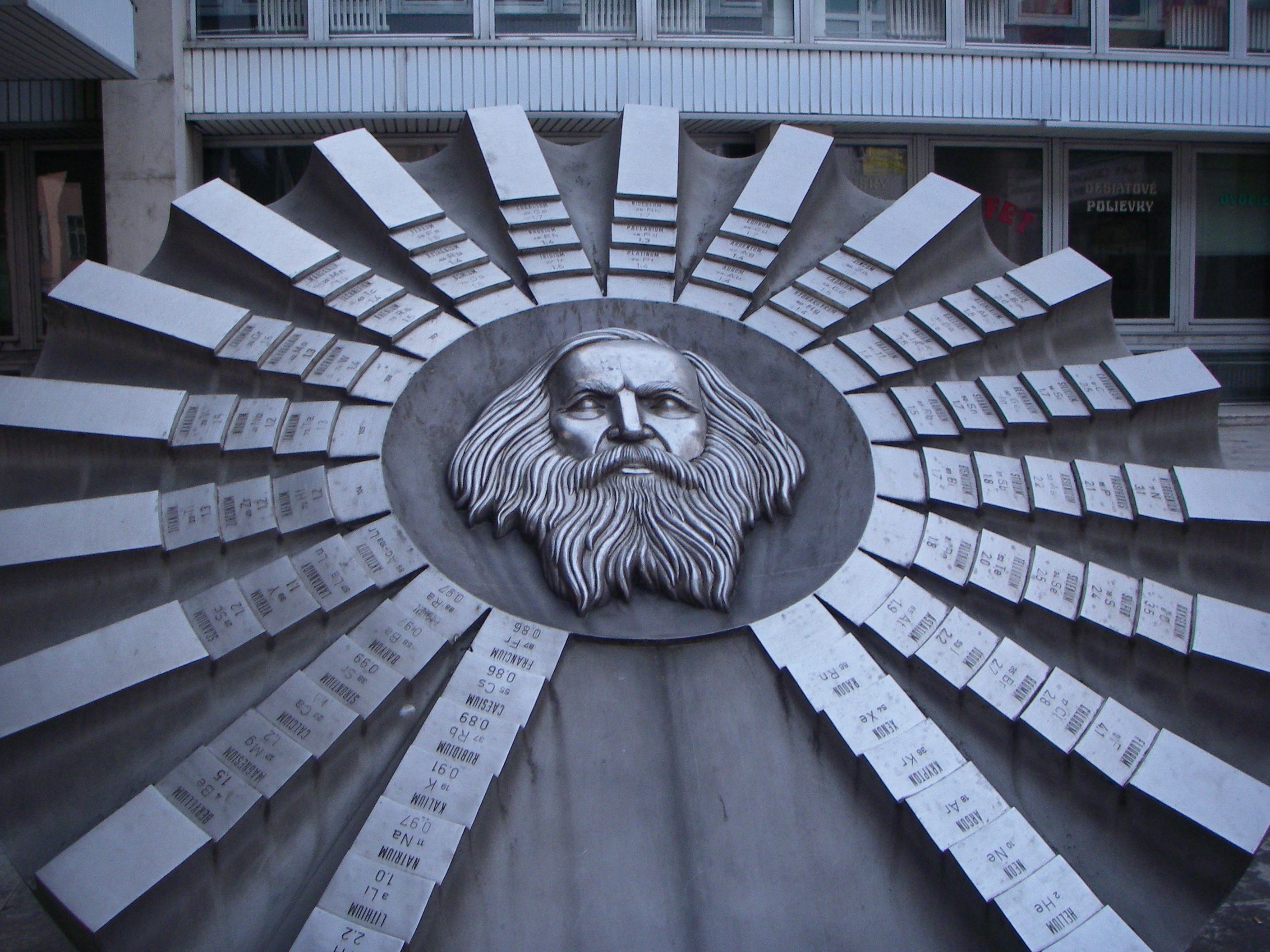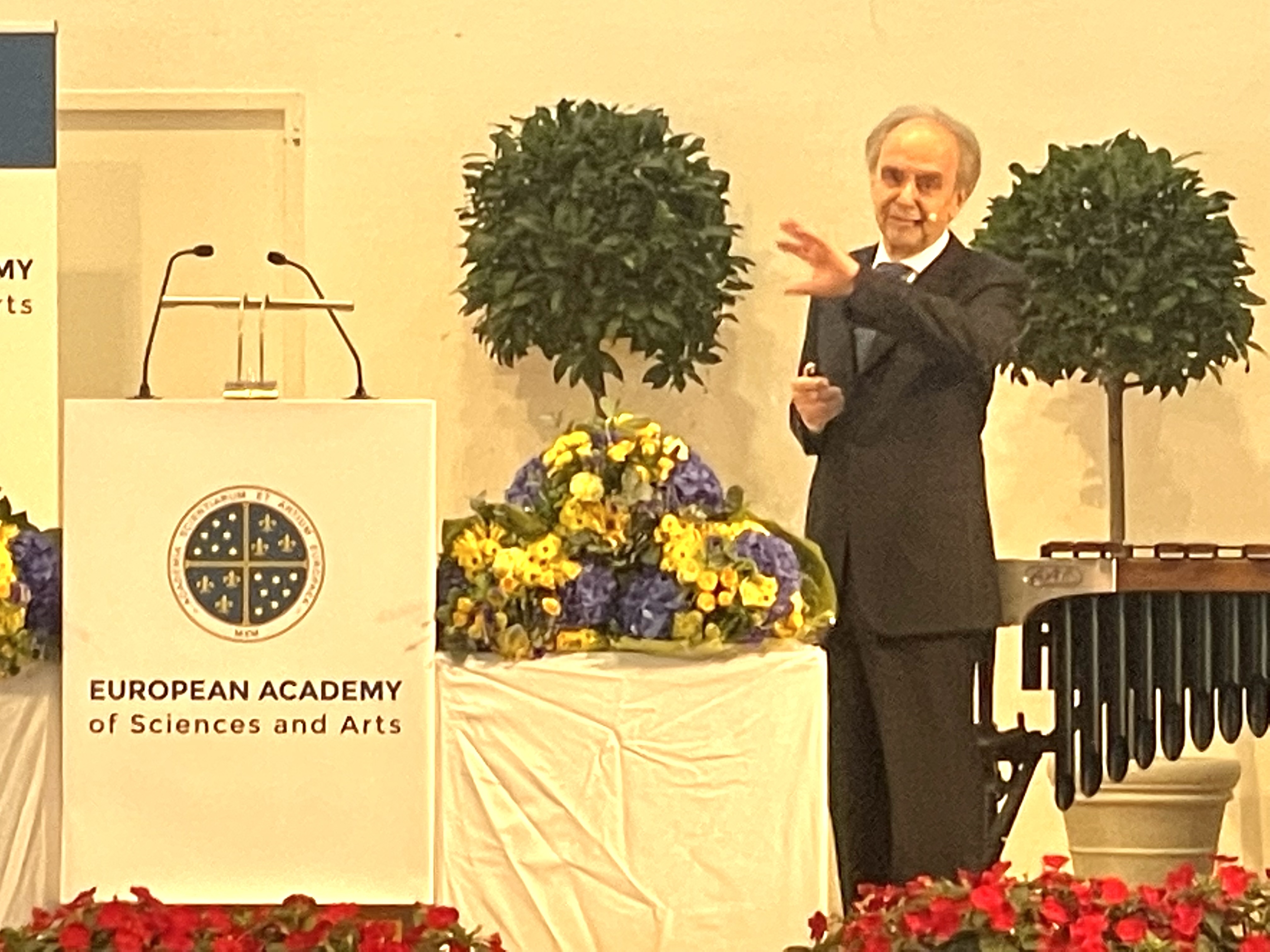|
Ilya Moiseev
Ilya Iosifovich Moiseev (russian: Илья Иосифович Моисеев; 15 March 1929 – 11 October 2020) was a Russian chemist. An expert in both kinetics and the coordination chemistry of transition metals, he made significant advances in metal-complex catalysis. Biography Moiseev was born in Moscow. He studied organic chemistry at Moscow State University of Fine Chemical Technologies (MITHT). After graduating in 1952, his first jobs were as an engineer, a junior researcher in physical chemistry, then a senior researcher in organic chemistry. From 1963, he worked at the N. S. Kurnakov (IGIC) of the Russian Academy of Sciences (RAS), Moscow, as head of the laboratory of metal-complex catalysis and coordination chemistry. From 2003 onward, he was a professor at the Gubkin Russian State University of Oil and Gas (RGUNG Gubkin). He also served as chairman of the Scientific Council for Gas Chemistry, RAS, and vice-president of the Russian Chemical Society. Research By devel ... [...More Info...] [...Related Items...] OR: [Wikipedia] [Google] [Baidu] |
Moscow
Moscow ( , US chiefly ; rus, links=no, Москва, r=Moskva, p=mɐskˈva, a=Москва.ogg) is the capital and largest city of Russia. The city stands on the Moskva River in Central Russia, with a population estimated at 13.0 million residents within the city limits, over 17 million residents in the urban area, and over 21.5 million residents in the metropolitan area. The city covers an area of , while the urban area covers , and the metropolitan area covers over . Moscow is among the world's largest cities; being the most populous city entirely in Europe, the largest urban and metropolitan area in Europe, and the largest city by land area on the European continent. First documented in 1147, Moscow grew to become a prosperous and powerful city that served as the capital of the Grand Duchy that bears its name. When the Grand Duchy of Moscow evolved into the Tsardom of Russia, Moscow remained the political and economic center for most of the Tsardom's history. When ... [...More Info...] [...Related Items...] OR: [Wikipedia] [Google] [Baidu] |
Academy Of Sciences Of The USSR
The Academy of Sciences of the Soviet Union was the highest scientific institution of the Soviet Union from 1925 to 1991, uniting the country's leading scientists, subordinated directly to the Council of Ministers of the Soviet Union (until 1946 – to the Council of People's Commissars of the Soviet Union). In 1991, by the decree of the President of the Russian Soviet Federative Socialist Republic, the Russian Academy of Sciences was established on the basis of the Academy of Sciences of the Soviet Union. History Creation of the Academy of Sciences of the Soviet Union The Academy of Sciences of the Soviet Union was formed by a resolution of the Central Executive Committee and the Council of People's Commissars of the Soviet Union dated July 27, 1925 on the basis of the Russian Academy of Sciences (before the February Revolution – the Imperial Saint Petersburg Academy of Sciences). In the first years of Soviet Russia, the Institute of the Academy of Sciences was perceived rat ... [...More Info...] [...Related Items...] OR: [Wikipedia] [Google] [Baidu] |
Physical Chemists
Physical chemistry is the study of macroscopic and microscopic phenomena in chemical systems in terms of the principles, practices, and concepts of physics such as motion, energy, force, time, thermodynamics, quantum chemistry, statistical mechanics, analytical dynamics and chemical equilibria. Physical chemistry, in contrast to chemical physics, is predominantly (but not always) a supra-molecular science, as the majority of the principles on which it was founded relate to the bulk rather than the molecular or atomic structure alone (for example, chemical equilibrium and colloids). Some of the relationships that physical chemistry strives to resolve include the effects of: # Intermolecular forces that act upon the physical properties of materials (plasticity, tensile strength, surface tension in liquids). # Reaction kinetics on the rate of a reaction. # The identity of ions and the electrical conductivity of materials. # Surface science and electrochemistry of c ... [...More Info...] [...Related Items...] OR: [Wikipedia] [Google] [Baidu] |
Soviet Chemists
This list of Russian chemists includes the famous chemists and material scientists of the Russian Federation, the Soviet Union, the Russian Empire and other predecessor states of Russia. Alphabetical list __NOTOC__ A * Aleksandr Arbuzov, discovered Arbuzov reaction. B * Alexander Baykov, an academician of the USSR Academy of Sciences. *Ernest Beaux, inventor of Chanel No. 5, ''"the world's most legendary fragrance"'' *Nikolay Beketov, inventor of aluminothermy, a founder of physical chemistry * Friedrich Konrad Beilstein, proposed the Beilstein test for the detection of halogens, author of the Beilstein database in organic chemistry * Boris Belousov, chemist and biophysicist, discoverer of Belousov–Zhabotinsky reaction, a classical example of non-equilibrium thermodynamics *Alexander Borodin, chemist and composer, the author of the famous opera ''Prince Igor'', discovered Borodin reaction, co-discovered Aldol reaction * Aleksandr Butlerov, discovered hexamine, for ... [...More Info...] [...Related Items...] OR: [Wikipedia] [Google] [Baidu] |
2020 Deaths
This is a list of deaths of notable people, organised by year. New deaths articles are added to their respective month (e.g., Deaths in ) and then linked here. 2022 2021 2020 2019 2018 2017 2016 2015 2014 2013 2012 2011 2010 2009 2008 2007 2006 2005 2004 2003 2002 2001 2000 1999 1998 1997 1996 1995 1994 1993 1992 1991 1990 1989 1988 1987 See also * Lists of deaths by day * Deaths by year {{DEFAULTSORT:deaths by year ... [...More Info...] [...Related Items...] OR: [Wikipedia] [Google] [Baidu] |
1929 Births
Nineteen or 19 may refer to: * 19 (number), the natural number following 18 and preceding 20 * one of the years 19 BC, AD 19, 1919, 2019 Films * ''19'' (film), a 2001 Japanese film * ''Nineteen'' (film), a 1987 science fiction film Music * 19 (band), a Japanese pop music duo Albums * ''19'' (Adele album), 2008 * ''19'', a 2003 album by Alsou * ''19'', a 2006 album by Evan Yo * ''19'', a 2018 album by MHD * ''19'', one half of the double album '' 63/19'' by Kool A.D. * '' Number Nineteen'', a 1971 album by American jazz pianist Mal Waldron * ''XIX'' (EP), a 2019 EP by 1the9 Songs * "19" (song), a 1985 song by British musician Paul Hardcastle. * "Nineteen", a song by Bad4Good from the 1992 album ''Refugee'' * "Nineteen", a song by Karma to Burn from the 2001 album ''Almost Heathen''. * "Nineteen" (song), a 2007 song by American singer Billy Ray Cyrus. * "Nineteen", a song by Tegan and Sara from the 2007 album '' The Con''. * "XIX" (song), a 2014 song by Slip ... [...More Info...] [...Related Items...] OR: [Wikipedia] [Google] [Baidu] |
Academia Europaea
The Academia Europaea is a pan-European Academy of Humanities, Letters, Law, and Sciences. The Academia was founded in 1988 as a functioning Europe-wide Academy that encompasses all fields of scholarly inquiry. It acts as co-ordinator of European interests in national research agencies. History The concept of a 'European Academy of Sciences' was raised at a meeting in Paris of the European Ministers of Science in 1985. The initiative was taken by the Royal Society (United Kingdom) which resulted in a meeting in London in June 1986 of Arnold Burgen (United Kingdom), Hubert Curien (France), Umberto Colombo (Italy), David Magnusson (Sweden), Eugen Seibold (Germany) and Ruurd van Lieshout (the Netherlands) – who agreed to the need for a new body. The two key purposes of Academia Europaea are: * express ideas and opinions of individual scientists from Europe * act as co-ordinator of European interests in national research agencies It does not aim to replace existing national ac ... [...More Info...] [...Related Items...] OR: [Wikipedia] [Google] [Baidu] |
European Academy Of Sciences And Arts
The European Academy of Sciences and Arts (EASA, la, Academia Scientiarum et Artium Europaea) is a transnational and interdisciplinary network, connecting about 2,000 recommended scientists and artists worldwide, including 37 Nobel Prize laureates. The European Academy of Sciences and Arts is a learned society of scientists and artists, founded by Felix Unger. The academy was founded 1990, is situated in Salzburg and has been supported by the city of Vienna, the government of Austria, and the European Commission. The EASA is now headed by President Klaus Mainzer, TUM Emeritus of Excellence at the Technical University of Munich and Senior Professor at the Carl Friedrich von Weizsäcker Center of the University of Tübingen. It is unrelated to and should not be confused with a different, highly controversial, and less well-established academy, the Belgium-based European Academy of Sciences. It is a member of the InterAcademy Partnership. Its activities have included a collab ... [...More Info...] [...Related Items...] OR: [Wikipedia] [Google] [Baidu] |
Academician
An academician is a full member of an artistic, literary, engineering, or scientific academy. In many countries, it is an honorific title used to denote a full member of an academy that has a strong influence on national scientific life. In systems such as the Academy of Sciences of the USSR, the title grants privileges and administrative responsibilities for funding allocation and research priorities. History Historically, the meaning for the title of ''Academician'' follows the traditions of the two most successful early scientific societies: either the Royal Society, where it was an honorary recognition by an independent body of peer reviewers and was meant to distinguish a person, while giving relatively little formal power, or the model of the French Academy of Sciences, which was much closer integrated with the government, provided with more state funding as an organization, and where the title of ''Academician'' implied in a lot more rights when it came to decision mak ... [...More Info...] [...Related Items...] OR: [Wikipedia] [Google] [Baidu] |



